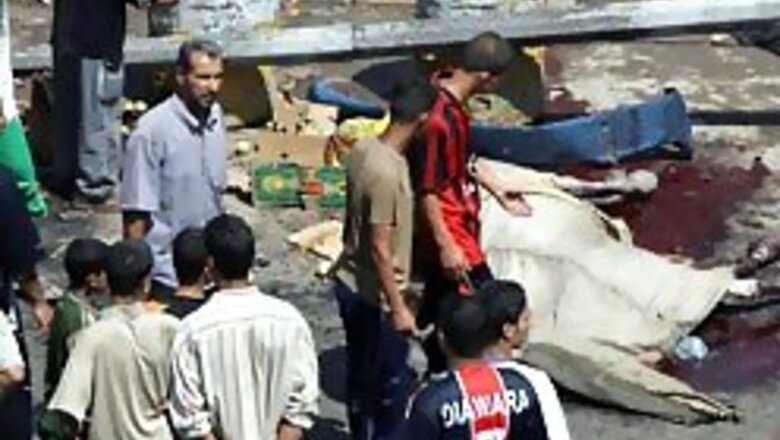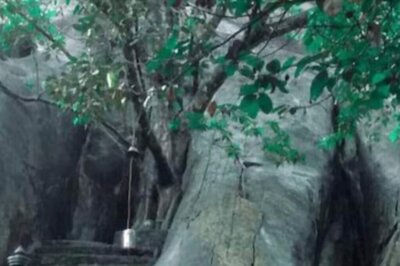
views
Baghdad: A car bomb tore through a market in a poor Shi'ite district of Baghdad on Saturday, killing 62 people and wounding 114 in the bloodiest attack in Iraq for three months, police and Interior Ministry sources said.
It came a day after Osama bin Laden urged al-Qaeda followers to avenge the killing by US troops of their leader in Iraq. Around the same time as the bombing, a Sunni Arab member of parliament and seven of her guards were abducted in the city.
Police said the market bomb went off in mid-morning as a police patrol was passing a parked car in a market area of the capital's eastern Sadr City district, a stronghold of the Mehdi Army militia of radical Shi'ite cleric Moqtada al-Sadr.
Angry crowds formed around the scene of devastation at the sprawling outdoor market along a main road in the slum district. "May God curse the Sunnis," one man yelled. "If the government can't protect people, they should hand security over to the Mehdi Army or to the people," another told reporters.
It was the deadliest attack since US forces killed al-Qaeda's leader in Iraq, Abu Musab al-Zarqawi, in a June 7 air strike. Bin Laden, in an Internet recording, urged insurgents to avenge his death, describing the Jordanian as a "lion of Jihad".
The US on Friday put a $5 million bounty on the head of Zarqawi's reputed successor, Abu Ayyub al-Masri. With the highest toll since over 70 died at a Shi'ite mosque on April 7, it was also the bloodiest attack since Shi'ite Prime Minister Nuri al-Maliki formed a unity coalition six weeks ago.
Maliki was due to begin his first foreign trip on Saturday in bin Laden's homeland of Saudi Arabia, seeking Sunni Arab support for the national reconciliation plan unveiled this week. Deputy Prime Minister Salam al-Zobaie met tribal chiefs from Sunni regions on Saturday as well as figures representing rebel groups, an aide to the Sunni deputy premier told Reuters.
Sectarian bloodshed
Days after Maliki held out his "olive branch" to the Sunni minority dominant under Saddam Hussein, unveiling a broad plan for national reconciliation, Sadr told followers at Friday prayers there could be no quarter given to "Shi'ite-haters".
His Mehdi Army is widely accused, despite his denials, of involvement in death squad killings and abductions of Sunnis in sectarian violence that peaked after the February bombing of a major Shi'ite shrine in Samarra pitched Iraq toward civil war.
Dozens of people are being killed each day in Baghdad alone. Angry onlookers at the scene of the Sadr City bombing turned on journalists arriving after the blast boomed across the city.
"We demand Maliki not seek reconciliation with terrorists," one man said, accusing Sunni leaders of complicity with killers. Bodies lay on the ground, some burned beyond recognition, others missing limbs. People wept and shouted. Cars blazed.
Maliki ordered a security clampdown on Baghdad three weeks ago but results have been mixed. Maliki's foreign trip will be a three-state tour of Sunni Gulf monarchies seeking backing and investment. His predecessor and fellow Shi'ite Islamist irked Arabs and the US by making his first trip last year to Shi'ite, non-Arab Iran.




















Comments
0 comment